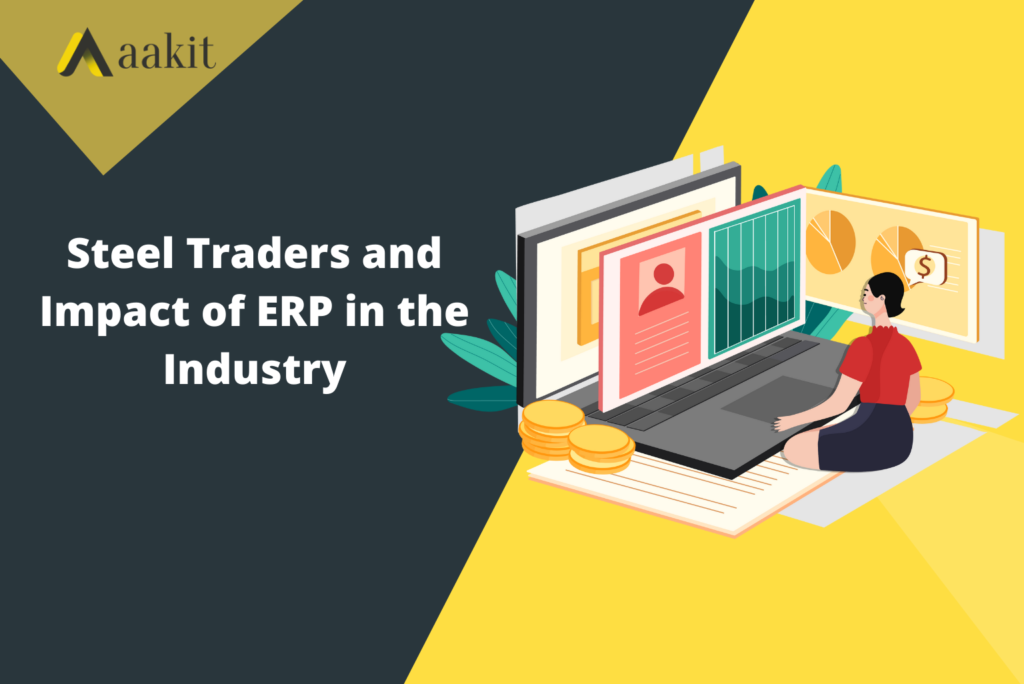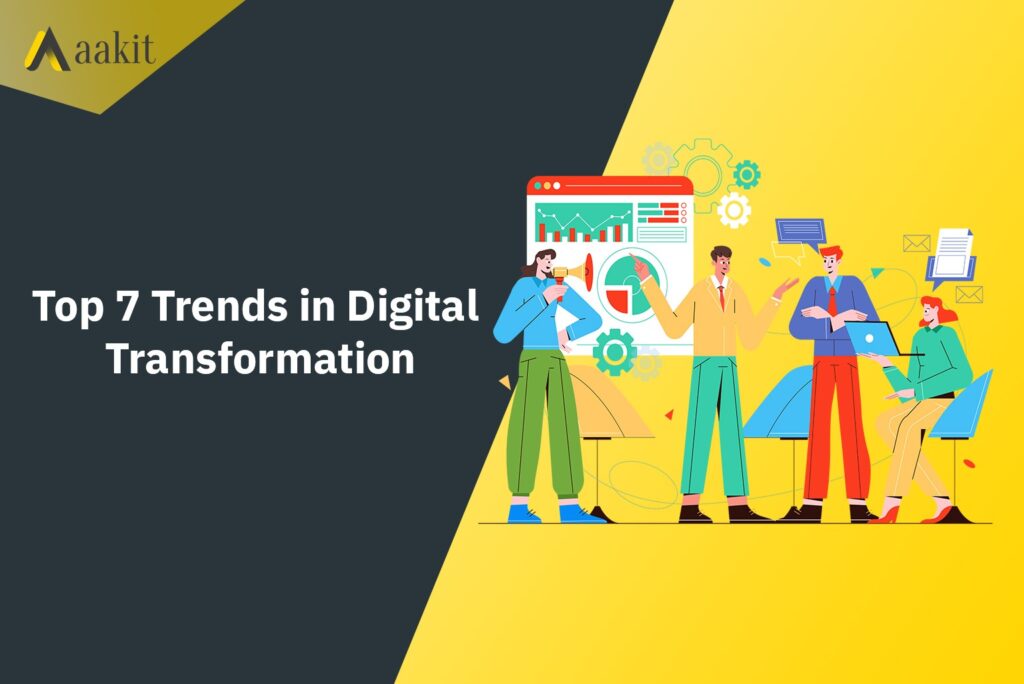When it comes to the manufacturing industry, Enterprise Resource Planning Software is unquestionably a formidable instrument. Multiple processes and functions run concurrently in the manufacturing industry. The manufacturing business has a large number of processes to complete, ranging from procurement through the exchange of raw materials to finished goods.
As a firm expands in size, the manufacturing industry functions become more complex. For example, for organizations that handle a large number of items, the industry is obligated to consider raw material availability for these various products, operational strategies, order tracking, quality productions, on-time deliveries, and so on. It becomes inconvenient if there is no efficient and reliable software to handle many processes. An ERP is a wizard tool that allows you to manage your manufacturing processes with ease.
AAKIT\’s CEO, Tayeb Barodawala, talked with the director of one such steel trading company, Nirav Shah. He spoke of the business and how ERP helped in overcoming the challenges during the times of COVID-19.
About Bharatkumar Indrasen Trading Pvt Ltd
Bharatkumar Indrasen was started as a proprietary concern by Mr Indrasen Shah in 1969, catering to the diverse needs of the industry in various Iron & steel products. In 1982, the concern started its trading activities exclusively in mild steel products from Steel Authority Of India Ltd.
The company is focused on bridging the gap between major steel producers and small scale enterprises that cannot procure the material due to changing financial rates. It provides working capital to credit-crunch enterprises with efficient operations but faces a monetary crunch due to an unorganized financial system.
The need for digital change
During Covid-19, a lot of industries shut down, or operations started remotely from employees\’ homes. It needed re-engineering the processes and management that most industries did to keep their businesses afloat. The most important change was transforming from conventional workplaces to digital workspaces.
Many industries are still trying to run from offices and are reluctant to digital change. This has pushed them far behind in the market competition.
Younger businesses have adapted quickly to digital needs and evolved their work settings accordingly. A lot of newcomers want to work remotely due to the risks of Covid-19. Thus, the transformation is imminent.
Also, in financial exchanges, any organization wants to do it errorless. Manual intervention in receiving and delivering payments might lead to errors which can be crucial for a company\’s sustainable functioning. Digitizing the processes will eliminate suck risks. Not only this, but it will also help check the accuracy of payments in far less time.
Challenges faced by the industries
Our client, Mr Nirav Shah, told us about the issues his company faced daily. These were:
- Management of a bulk number of transactions like e-invoicing, statutory compliances, banking etc.
- Integration of data.
- Receiving real-time information.
- Errors in manual data entry.
- Time-consuming and haphazard processes.
- Complexities in arranging the data and moving it forward through different channels seamlessly.
With so many challenges to deal with, the client needed an integrated system that could be robust and scalable. Here, Aakit\’s S4/HANA powered ERP system came into play. The company adopted it, and the results are phenomenal.
ERP system transformation
ERP system brings a substantial impact on business processes. Not only does it deal with the conventional challenges, but it also helps in increasing the efficiency and productivity of a business manifold. Below is the list of advantages of S4/HANA that the client came across after considering the ERP system.
- Ease of information.
- Smooth access to real-time data.
- No duplication of works due to reduced use of multiple applications.
- Decrease in inter-dependability on the channels – In conventional processes, work won\’t progress unless it is completed by one channel. In ERP, one can work in different channels of the process simultaneously.
- Elimination of errors due to lesser manual intervention.
- Increased scalability.
- Lesser time-consumption.
- Easy exploitation of the features for high business efficiency.
- Quantifying decision-making considers even minute differences, which are otherwise used to skip in manual entry.
- Seamless running of businesses.
- Increased overall efficiency as well as productivity.
We see here the advantages are endless as the challenges faced by the client could be overcome easily. Not only this, according to our CEO, Tayeb Barodawala, ERP system, along with the exchange of information among organizations, with customers, suppliers, etc., would be more beneficial.
AAKIT’s service delivery in COVID-19
As per our client, Mr Nirav Shah, there were a lot of fears on his side regarding:
- Transformation of the whole process.
- Integration of regular operations along with progressing into ERP systems daily.
- Training of employees in COVID-19.
- Bandwidth issues.
However, once the transformation process started, AAKIT\’s service delivery was highly efficient. As per the client\’s feedback, the entire team of AAKIT provided a smooth transformation experience and were always ready to help wherever required. In his word of mouth, Nirav Shah said,
\”Feedbacks and solutions that kept coming from AAKIT team were always better than the previous suggestions. Initially, there were a lot of deliberations in terms of operations. However, the whole collaboration was pretty smooth and efficient. It seemed like a cake-walk.\”
Conclusion
You must be able to keep up with the ever-changing technical developments in the face of increasingly tough corporate competition. Using manual or archaic methods to run your business can only leave you behind. Why haven\’t you automated your processes as other business owners have?
ERP can help you simplify various complex activities, increase efficiency, cut expenses, and boost your company\’s production. It can be used by enterprises of several types, including small, medium, and large ones.
Now that you know what ERP software is, you can learn about its history, benefits, deployment types, typical modules, and factors to consider when selecting it. The following step is to identify all of the difficulties that your company is encountering, as well as the solutions that are required.
We at AAKIT have a highly professional team of ERP solution providers. Click here to find out more about AAKIT and its efficient services.



